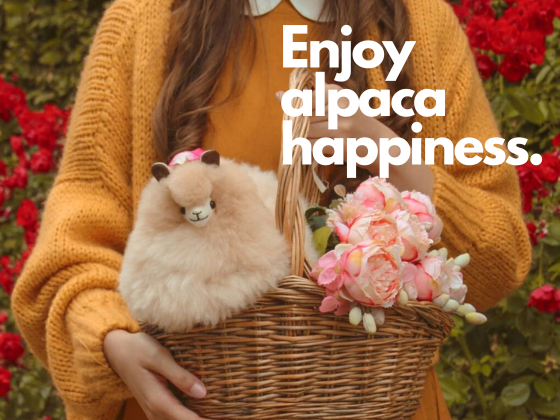In this blog post, we want to educate you on all the real benefits of Alpaca Fleece. The Inkari journey entails our dedication to the planet, the people we serve, and our beautiful alpacas, which we would love to share with you!
Sustainable alpaca qualities
Our journey starts in the Andean Highlands where alpacas roam freely and prosper, even in these harsh climates.
The alpaca is an animal with a very low environmental impact.
We have summed up some of their key characteristics and benefits for an easy read.
Soft Cushions
Alpaca hooves are softly padded with small cushions.
These reducer the damaging soil compression effect greatly: true fact!
Fields of grass remain undamaged and keep the ecosystem fertile.
Soils that are rich in fluffiness and beneficial creatures add to the health of the ground.
Increased soil fertility results in more water retainment and ultimately, well-nourished alpacas.
It's a win-win for both alpacas and the environment!
Plucking beauty
No sleeping beauty, but a fluffy plucking beauty!
Alpaca mouths lack teeth in their upper palette affecting the way they eat.
This differentiates alpacas from other fiber producing animals.
An alpaca plucks grass; other wooly animals distress roots and some even rip entire clumps of grass out of the soil.
Leaving in the roots results in less soil erosion and depletion.
Both are extremely important for the health of land.

Water efficiency
Did you know that alpaca water usage is far less than similar fiber-producing animals?
Evolving in extreme climates where water is only consistently available in some lower areas has led to a very efficient conversion rate of water.
Alpacas are therefore incredibly interesting livestock in a society where water becomes scarcer by the day.
Water grabbing (= where powerful actors take control of valuable water resources for their own benefits) is known to occur often in South America.
This action derives small communities from water.
Alpacas will make for a logical choice when water is becoming more and more absent.
Native delicacies
Alpacas nourish on a variety of plants, including many native species.
There is no need to plant mono crops and disturb natural vegetation.
Dependency on mono-agriculture increases the proneness to devastating diseases and the probability of stocks, and therefore livestock food, collapsing.
Alpacas are the greenest choice and produce the greenest alpacafibers, that’s why we love them!

Alpaca Farming and Processing
Alpaca fleece is processed and nothing is wasted.
The fact that alpacas from our producers are not produced for leather only is what sets these animals apart from ‘mainstream leather production’, where the end product (leather) is more valuable than the incremental yields and its profits (shorn alpaca wool).
Chemical-free
Alpaca fleece is a more responsible choice and helps to support the local alpaca farmers who provide for their families.
Our partners are carefully selected on their animal-friendly methods and high quality alpaca wool.
Sustainable methods entail chemical-free production as well. As you might have read on Alpaca Wool,
Alpaca Fleece lacks lanolin and therefore the need to use heavy chemical-laden soaps to scour the lanolin from the alpaca fleece.
Environmentally friendly soaps can easily be used without damaging or harming the environment.
Natural qualities aside, you’re probably wondering about the people and the ways in which these animals provide jobs and well-being for many artisan workers?
Inkari Includes
Throughout the past 6 years, we have come into contact with all sorts of Peruvians from a variety of different social classes, geographic regions, and cultural backgrounds.
From extreme poverty to those who enjoyed great wealth, all have taught us the value of local traditions and methods to process the alpaca fleece.
Inkari attempts to create value for the artisan workers by selecting only partners that work with or are part of these less fortunate population groups.
Alpacas are cute animals, but do not let this cuteness fool you and underestimate them.
Both ecologically and socially these animals are astonishing and unparalleled.
The journey of Inkari is to make you and the world around you aware of this green alternative to the more mainstream fibers.
Like what you’ve read? Then you’re definitely going to like what you see!





